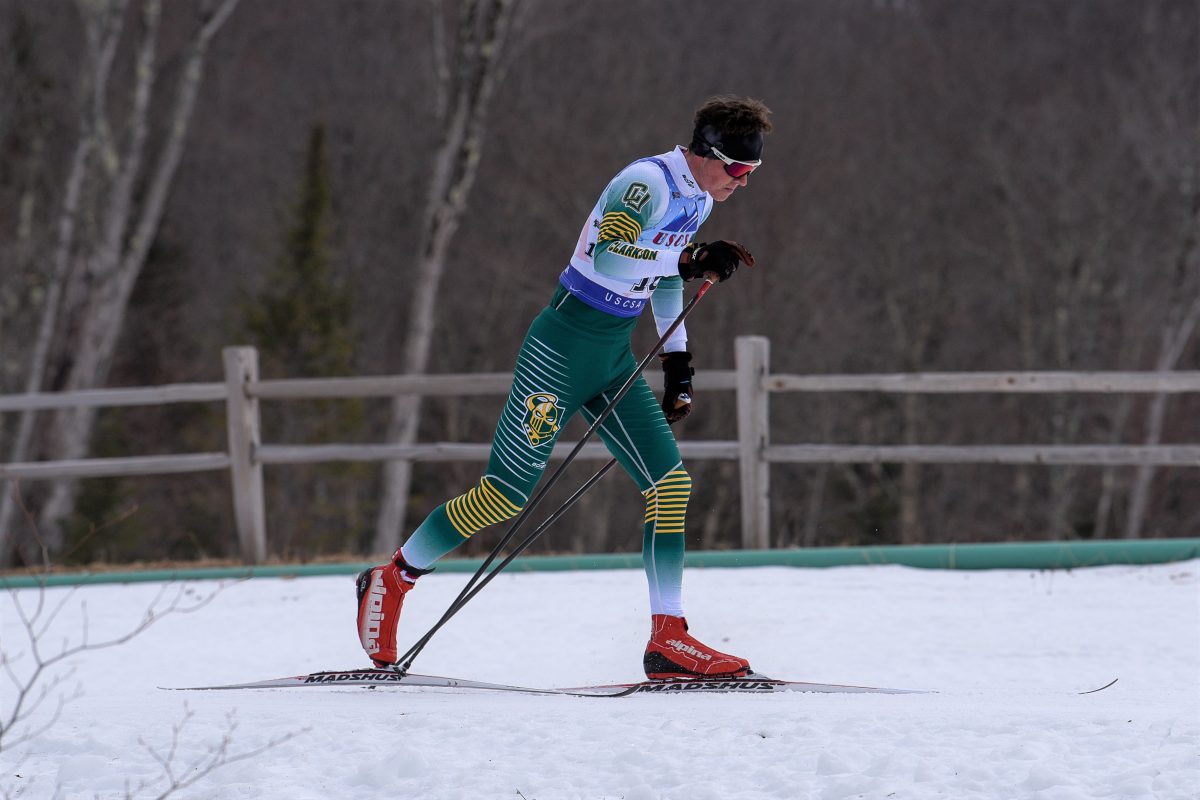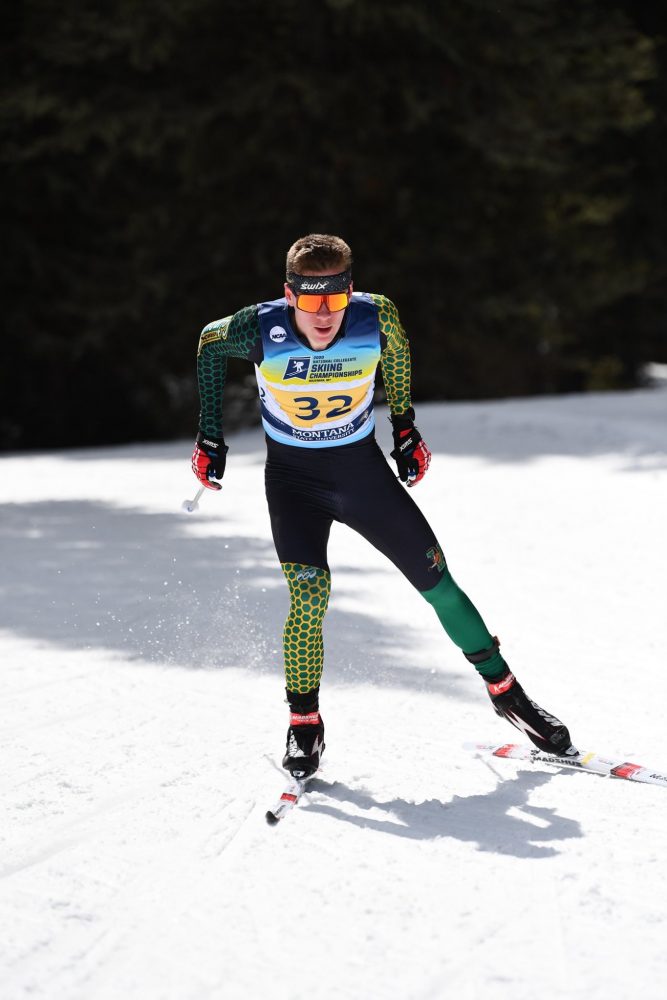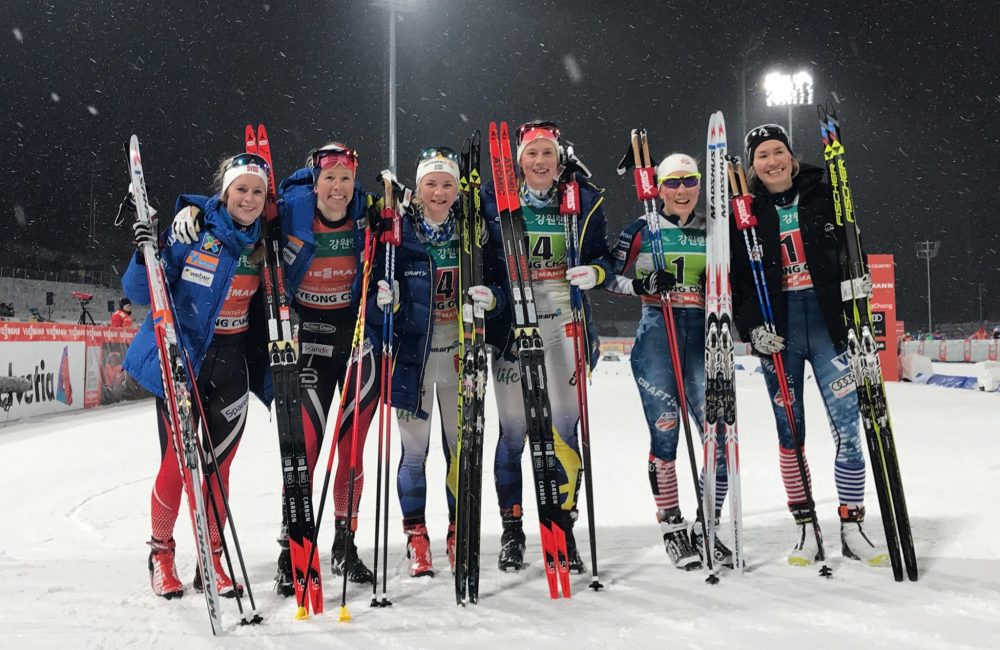
It was a sprint course that catered to climbers. For those tuning into the televised event, it might have even been mistaken as a final-stage climb, with two back-to-back, 20-meter-long uphills taking most of the competition screen time.
Maybe that’s why during all three of her legs in Sunday’s 6 x 1.4-kilometer freestyle team sprint, American distance specialist Liz Stephen stole the front-runner spotlight.
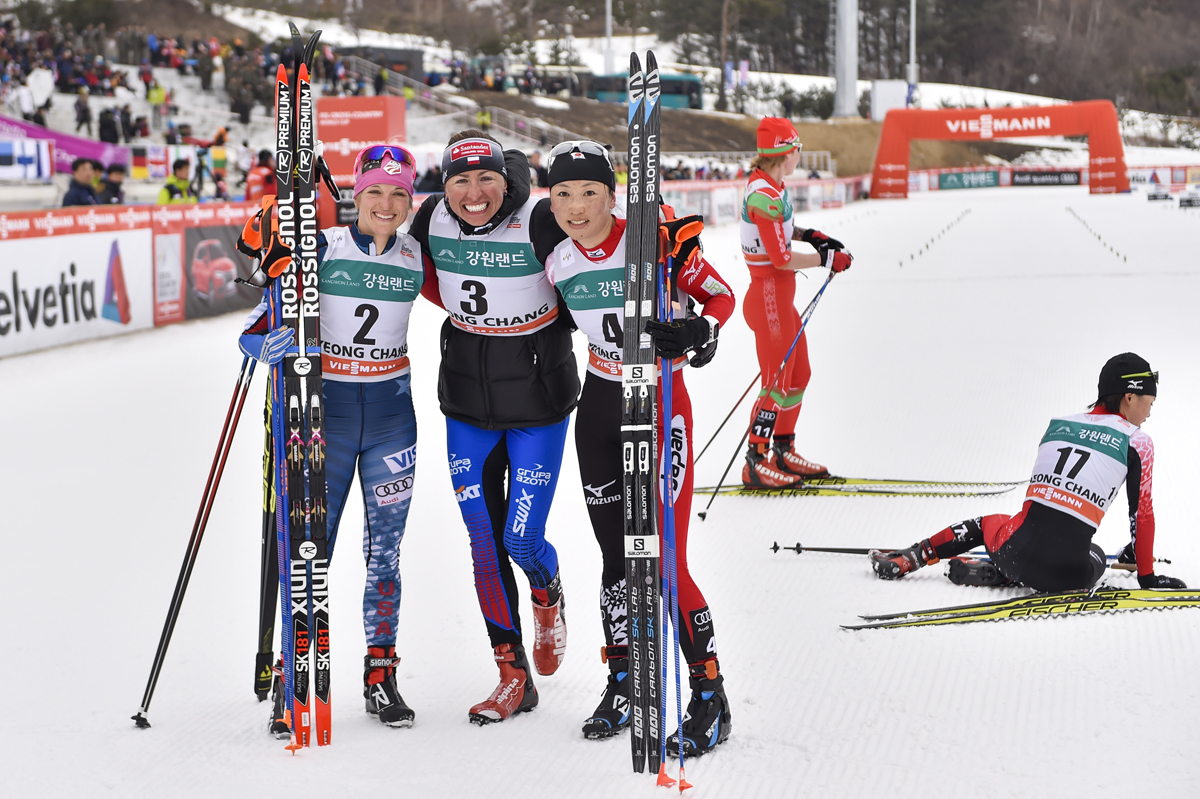
Even with the shallower World Cup field competing in PyeongChang, South Korea, the U.S. Ski Team (USST) distance skier was having a weekend. For the first time in three years, Stephen advanced to the World Cup sprint heats on Friday and earned her seventh individual World Cup podium on Saturday.
Teaming up with Caitlin Patterson on the second U.S. team on Sunday, Stephen was leading the likes of USST sprinter Ida Sargent, Norway’s Silje Øyre Slind, Sweden’s Maria Nordström, and Slovenia’s Anamarija Lampič (the winner of Friday’s classic sprint).
“If it would have been a flat course today there would have been no chance,” Stephen said on the phone after. “I need a course like this, for sure.”
With the 1.4 k course housing a pair of hard-hitting hills, Patterson and Stephen were causing the field — including their compatriots Sophie Caldwell and Sargent skiing for the U.S. first team — to scramble throughout the final’s six laps.
After skiing in the back of the pack for most her first leg, the 27-year-old Patterson had taken over the lead from Caldwell, Norway’s Anna Svendsen, and Russia’s Anna Medvedeva by the end of Lap 1.
Stephen took charge in the second leg, leaving Slind, Sargent and Nordström fighting to keep up with her high tempo on the hills.
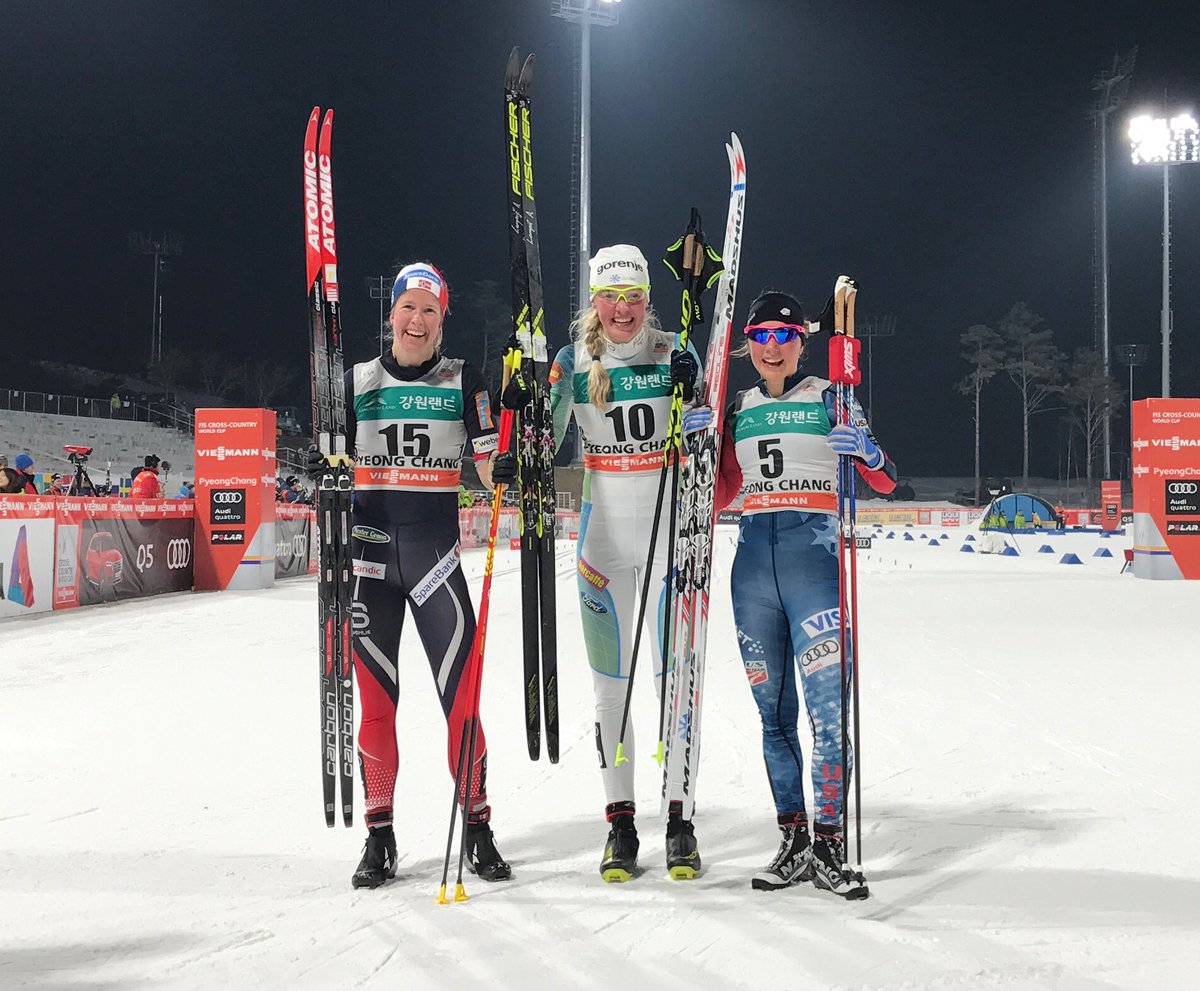
“I was skiing with Liz all day … and I was just trying to hold on for dear life,” Sargent, who placed third in the classic sprint to start the long weekend, said on the phone. “[This was] probably by far the hardest course I’ve ever done. It felt more like a distance race than a sprint. Normally in a sprint race I hop skate up the hills and I don’t think I hop skated at all today.”
With Nordström maneuvering around Stephen just before the exchange zone, it was Sweden’s Elin Mohlin out first for the third leg, followed by Patterson and Caldwell. A fall had forced Slind to from a second place positioning to last by her hand off to Svendsen.
“On my first leg I managed to fall in the curve before the stadium,” Slind said according to a International Ski Federation (FIS) press release. “Afterwards I spent a lot of energy to get in contention with the leading group. There was no space for resting on the course.”
As Caldwell explained, her tactic for the final was to spend as much time in the draft as possible.
“This sprint course is one of the hardest ones we’ve ever encountered and we knew doing it three times in a row was going to be really tough,” Caldwell wrote in an email. “In the final I wanted to do more following and try to hang when moves were made.”
Patterson continued to pace the field from the front, putting Stephen once again in the lead for the fourth leg.
As Stephen approached the second hill, both Sargent and Nordström surged to her left. By the top, it appeared as if Sargent would make her way to the front.
Neither Sargent or Nordström, however, managed to take the lead before the exchange to the fifth leg.
With the lead back to Patterson, Caldwell followed closely in second, Mohlin in third, Slovenia’s Katja Visnar in fourth and Svendsen in fifth.
“I’m really proud of how both of our teams skied today,” Caldwell wrote. “Liz and Caitlin proved that distance skiers can also rock on this course and in team sprints in general, and it was so cool to have two teams fighting for the podium.”
On the second climb, Visnar made her move, sweeping around Patterson’s right. Caldwell and Patterson held on for the chase along with Mohlin and Svendsen.
Yet, in the exchange for the final leg, it was Stephen once again who emerged first from the crowd charging. By the end of the first climb, she had put close to a seven-meter gap on the rest of the field, Slind, Sargent, Nordström in hot pursuit.
Midway through the second climb, however, Slind and Nordström had regained contact with Stephen, moving around her at the top.
“My strategy the whole day was to go hard and hope that I could kill people before the last lap, and it almost worked, but not quite,” Stephen said.
A battle for first began between Sweden and Norway, while a second battle between the two U.S. teams began for third. Sweden outskied Norway, with Nordström crossing in a time of 20:37.11 for the win. Slind crossed 1.71 seconds later for second place.
“I was nervous when Maria Nordström raced at the end, but I know she is strong and I hoped she would make it,” Mohlin told Langd.se, according to a Norwegian translation.
Still head to head closing in on the final 100-meter stretch were the Americans, neither willing to budge, until the finish line, where Sargent outlunged Stephen by 0.35 seconds for third, 6.11 seconds out of first.
“I was trying to stick with Liz going up the hill, cause I knew if I could hold on on the hill, the downhill, and the sprint to the finish would be my strength,” Sargent said. “It was really fun to be on the podium with [Sophie], and to race with Liz and Caitlin in the final.”
Despite just barely missing the podium, Stephen was pleased with the performance, it being her first time competing in a team sprint in nearly eight years.
“There was a moment when I thought it was possible that both of our teams could be on the podium,” Stephen said. “I skied the day the best that I could and I’m really happy with the result.”
Gabby Naranja
Gabby Naranja considers herself a true Mainer, having grown up in the northern most part of the state playing hockey and roofing houses with her five brothers. She graduated from Bates College where she ran cross-country, track, and nordic skied. She spent this past winter in Europe and is currently in Montana enjoying all that the U.S. northwest has to offer.


